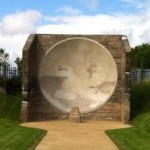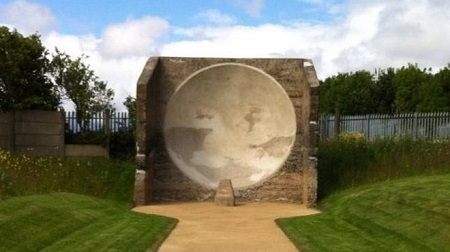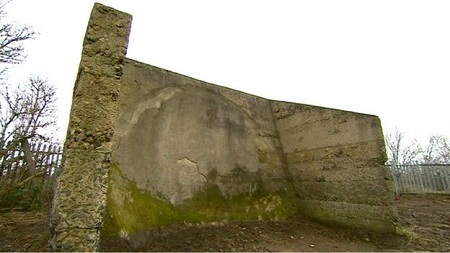A “forgotten” piece of history which
Fulwell Acoustic Mirror was built in 1917 to help detect German airships following a series of Zeppelin raids on the North East coast.
protected Sunderland from Zeppelin attacks in World War One has been restored.
Left to deteriorate, it has now been restored after a £68,000 revamp.
Sunderland City councillor John Kelly, said it was an important monument that “told a story” and should not be lost.
The mirror was designed to act as an acoustic early warning system against air raids after a bomb dropped by a Zeppelin over the Wheatsheaf area of Sunderland in April 1916, leaving 22 people dead and more than 100 injured.
It reflected sound detected by a microphone in front of the dish to an operator who could alert the authorities of approaching Zeppelins.
Using sound detection methods learnt in the trenches, it was designed to give a 15-minute warning of approaching enemy airships.
The project used specially developed techniques, including the use of diluted sheep droppings to carry out repairs.
Photo credit: BBC NewsThe concrete structure, with its rendered concave dish, is one of only six acoustic mirrors built during World War One still standing.
Mr. Kelly said: “Fulwell Acoustic Mirror is a very rare, long lost reminder of the home front in the North East during the First World War.
“The restoration has given the acoustic mirror a new lease of life by preserving it for future generations almost a hundred years after it was built to defend our shores.”
The project used specially developed techniques, including the use of diluted sheep droppings to carry out the repair work.
The restoration was a project between the council, Historic England and Limestone Landscape.
Source: BBC News – BBC.com




